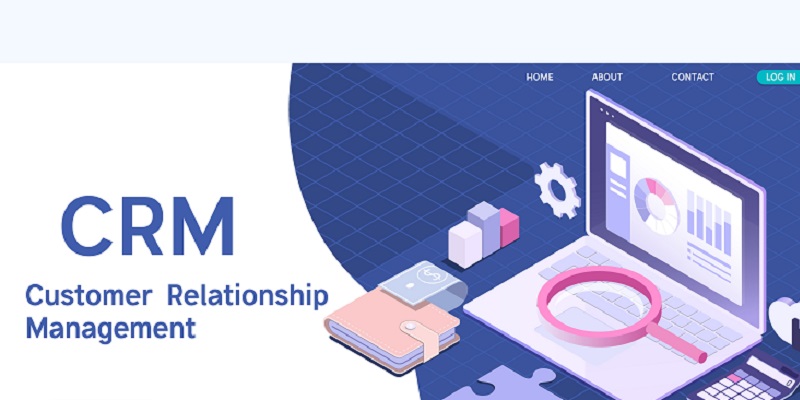In today’s competitive business landscape, data plays a crucial role in helping organizations make informed decisions and drive revenue growth. For B2B companies, the challenge lies in bringing data together from various systems and departments into a unified and cohesive whole. Fortunately, most B2B companies already have a Customer Relationship Management (CRM) system in place, which can serve as the perfect solution for data unification and measurement. In fact, using the CRM as the company’s measurement hub not only provides a single source of truth but also enables leaders to make more informed decisions based on credible metrics.
The importance of data unification in B2B companies
Unifying data from multiple systems is essential for B2B companies as it eliminates information silos and ensures a holistic view of the organization’s performance. When data is scattered across different tools and departments, it becomes challenging to gain meaningful insights. However, having a CRM instance that can consolidate data from various sources into a cohesive whole creates a comprehensive picture of the company’s revenue stream and enables leaders to track performance accurately.
Using CRM as the measurement hub for revenue tracking
CRM systems are already the de facto revenue record for most B2B companies. Therefore, it makes sense to leverage this existing infrastructure to serve as the company’s measurement hub. By centralizing measurement within the CRM, leaders can easily monitor and analyze revenue-related data, leading to better decision-making and improved sales performance.
The benefits of a CRM-based measurement platform
A CRM-based measurement platform enables leaders to gain valuable insights into where employees can most profitably spend their time. By understanding which activities drive revenue and which ones do not, leaders can make informed decisions about resource allocation, ultimately maximizing the efficiency and productivity of their workforce.
With full visibility into the revenue funnel, sales teams can take immediate action to achieve or exceed their goals. By analyzing CRM data, sales leaders can identify bottlenecks, optimize processes, and provide targeted coaching to their teams, resulting in improved sales performance and revenue growth.
When data is not unified on the CRM, each department ends up maintaining its own information silos and measurement tools. This leads to a significant waste of time and resources on processes that do not directly contribute to revenue generation. However, by bringing data together on the CRM, organizations can eliminate redundant processes and focus on activities that truly drive revenue.
Creating a single source of truth with unified data on CRM
A CRM-based measurement platform creates a single source of truth for an organization. By consolidating data from various sources into the CRM, B2B companies can ensure that all stakeholders have access to accurate and up-to-date information. This not only enhances transparency but also improves collaboration among teams and departments, fostering a culture of shared goals and objectives.
Driving cost efficiency and saving time with CRM-generated reports
Measuring performance inside the CRM enables marketers to generate reports that drive cost efficiency while saving time. With unified data available at their fingertips, marketers can easily analyze campaign performance, identify areas for improvement, and allocate resources more effectively. This leads to a higher ROI and reduced wastage of marketing resources.
Real-time monitoring and course correction for maximizing revenue
One of the key advantages of a CRM-based measurement platform is the ability to monitor activities in real-time. Department leaders can track progress, identify potential roadblocks, and course-correct as needed to ensure revenue targets are met. This agility allows organizations to make quick adjustments and optimize their strategies for maximum revenue growth.
Uncovering New Revenue Opportunities with Cross-Functional Data
Having cross-functional data in a central repository allows B2B companies to surface new revenue opportunities. By analyzing data from different departments, organizations can identify potential synergies, develop targeted cross-selling or upselling strategies, and tap into previously untapped market segments. This holistic approach to revenue generation enables companies to unlock new sources of growth.
Promoting collaboration and effectiveness in B2B companies
CRM-based measurement facilitates the collaboration that B2B companies need to operate at peak effectiveness. With everyone working from the same data source, departments can align their efforts, share insights, and collaborate on strategies that drive revenue growth. This collaborative approach fosters a more cohesive and efficient organization, ultimately leading to stronger business outcomes.
In the increasingly data-driven world of B2B companies, leveraging CRM-based measurement is paramount for driving revenue growth and fostering effective collaboration. By unifying data on the CRM and using it as the measurement hub, organizations gain valuable insights, take informed actions, and unlock new revenue opportunities. Moreover, having credible metrics from the company’s revenue system of record enables B2B organizations to invest time and money more wisely and collaborate more effectively with colleagues across the organization. Embracing a CRM-based measurement platform not only leads to improved business performance but also sets the stage for long-term success in today’s competitive marketplace.

